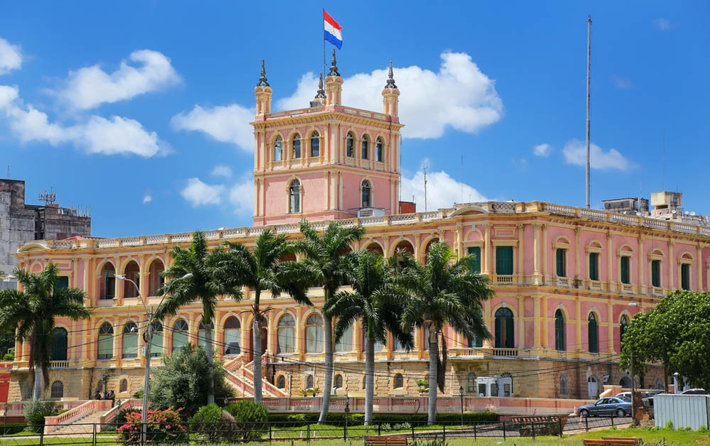Paraguay Drug Consumption Problem

Paraguay is a small country that, as far as the media is concerned, seems hidden under the bulk of Brazil. Make a search of the New York Times or the Washington Post for Paraguay and about all you will come up with is the fact that the Paraguayan soccer team made it to the quarterfinals of the last World Cup.
This landlocked country about the size of California is wedged between Bolivia, Argentina, and Brazil. Its physical location puts it in a good position to be utilized for international drug transit and the production of cannabis destined for other South American countries. One wonders if the current trend of low domestic drug consumption can possibly last.
Paraguay Known for Some of Highest Cannabis Production in the World

The UN reports that Paraguay is the highest cannabis producer in South America, and internationally, only Mexico and Morocco produce more. Cannabis travels from Paraguay into Argentina, a country with high rates of cannabis consumption, and Brazil. The largest and most frequent cannabis seizures occur along the border with Brazil and most particularly in the corner where Brazil, Argentina, and Paraguay all meet, around Ciudad Del Este. Many of the drug traffickers arrested in these border areas are Brazilian.
Most countries in South American point to Paraguay as their source country for cannabis in their country, notably Brazil, Argentina, and Chile. As cannabis production increased in Paraguay, consumption in Brazil nearly tripled between 2001 and 2005. Argentina’s consumption increased even more. Approximately 85 percent of Paraguay’s cannabis is destined for Brazil, 10 to 15 percent for other countries in the Southern Cone (the bottom half of South America) and just two to three percent for Paraguayans.
In 2006, it was estimated that Paraguay produced 5,900 metric tons of the drug. This is more than half of the cannabis produced in the entirety of South America. Additionally, Paraguayan cannabis is known for its high potency, which places it in demand among consumers. And new strains of cannabis can be harvested all year round.
Corruption and Porous Borders Enable Traffickers to Utilize Paraguay for their Purposes
Widespread corruption enables drug traffickers to use the financial institutions of the country to move their illicit proceeds from country to country and to move precursor chemicals for methamphetamine or cocaine manufacture and cocaine through the country. For example, cocaine travels through Paraguay from Bolivia on its way to Europe, Africa or Southern Cone countries.
Not surprisingly then, methamphetamine consumption has recently seen an increase in Paraguay and some other South and Central American countries.
In a flagrant example of corruption enabling drug trafficking and manufacturing, a government official suspected of strong ties with traffickers was named the Chief of Police in a northwest Paraguayan district that is becoming a major corridor for the movement of drugs by ground transport and air.
Paraguayan Government Works Hard to Prevent Drug Abuse Among the Young
Since 2005, the Office of Demand Reduction has reached tens of thousands of students in hundreds of schools each year with drug awareness programs. Currently, student use of cannabis, cocaine, and opiates is low, the government intends to maintain this trend. The most abused substance among students is glue and new laws are in the process of making the abusable forms of this substance less available.
Paraguay has recently turned to Brazil, a more affluent country with more resources, to help fight the trafficking, violence, and problems connected with substance abuse and addiction.
Narconon Drug and Alcohol Rehabilitation Program Provides Help
To those who wish to break the pattern of drug use or drinking that is destroying their lives, Narconon provides a unique drug recovery program that works.
In Narconon, addicts can find the solution they need to drug or alcohol addiction. A holistic substance abuse treatment program takes those who are addicted through a thorough detoxification and reorientation exercises, and then onto a life skills training regimen that enables people to leave the past behind and look forward to a bright new future. Graduates ordinarily restore family relationships, renew personal value systems and experience the relief of restored personal integrity. It all adds up to a new life without drugs.
 ®
®